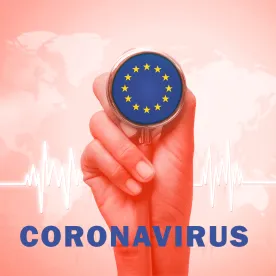The rapid spread of COVID-19 in Europe and the measures being implemented to counter the disease have resulted in an unprecedented surge of consumer demand for essential supplies.
In response to the unfolding crisis the European Competition Network (ECN) has issued on 23 March 2020 – on behalf of the European Commission, the EFTA Surveillance Authority and the national competition authorities of all EU and EEA Member States1 – a joint statement outlining the approach to the enforcement of EU/EEA competition law during the current crisis.
The ECN statement acknowledges the social and economic consequences resulting from the COVID-19 outbreak and outlines the following positions in relation to the enforcement of EU/EEA competition law during the crisis:
|
• |
The ECN will not actively intervene against competitors cooperating in relation to necessary and temporary measures aimed at ensuring the supply and fair distribution of scarce products to all consumers. |
||||
|
• |
The ECN considers that in the current circumstances such measures are unlikely to be problematic from a competition law perspective because they would: |
||||
|
|
|
||||
|
• |
Parties with doubts concerning the compatibility of any cooperation initiatives with EU/EEA competition law may as appropriate contact the European Commission, the EFTA Surveillance Authority or the national competition authorities for informal guidance. |
||||
|
• |
On a separate but related note, the ECN statement warns that the relevant enforcement authorities will “not hesitate to take action against companies taking advantage of the current situation by cartelising or abusing their dominant position.” It also notes that manufacturers are within the existing rules already empowered to set maximum resale prices and that this “could prove useful to limit unjustified price increase at the distribution level”, i.e., be used to prevent price gouging by resellers. |
The above development echoes the administrative and legislative measures announced in the United Kingdom on 19 and 20 March 2020, which are aimed at safeguarding fundamental consumer needs during the COVID-19 crisis by enabling certain cooperation between supermarkets and creating a dedicated enforcement task force to counter harmful sales and pricing practices such as price gouging. See the previous GT Alert “UK Competition Law: Accommodations for Safeguarding Fundamental Consumer Needs During the COVID-19 Crisis” for further details.2
This GT Alert is limited to non-U.S. matters and law.
For more information and updates on the developing COVID-19 situation, visit GT’s Health Emergency Preparedness Task Force: Coronavirus Disease 2019.
1 The EU Member States are: Austria, Belgium, Bulgaria, Croatia, Cyprus, Czech Republic, Denmark, Estonia, Finland, France, Germany, Greece, Hungary, Ireland, Italy, Latvia, Lithuania, Luxembourg, Malta, The Netherlands, Poland, Portugal, Romania, Slovakia, Slovenia, Spain and Sweden. The EEA Member States (which are not also EU Member States) are: Iceland, Liechtenstein and Norway.
2 While the UK retains access to certain ECN resources during the transition period following its withdrawal from the EU, the UK Competition and Markets Authority is no longer an ECN member.




 />i
/>i

